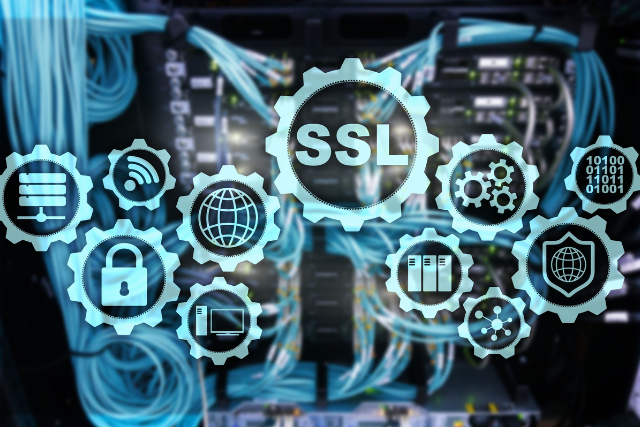Website security and SSL (Secure Sockets Layer) have become indispensable in today’s digital world. By understanding the common threats to website security and how SSL ensures secure data transmission, businesses can adopt best practices for safeguarding their online presence.
With a technical, precise, and detailed approach, this article caters to an audience seeking to establish a sense of belonging by staying informed about cutting-edge security measures.
Key Takeaways
- Website security and SSL are essential for protecting sensitive user information and maintaining the integrity of online transactions.
- SSL encryption ensures secure communication between a user’s browser and the web server, while SSL certificates provide authentication and trustworthiness.
- Different types of SSL certificates are available, with EV certificates offering the highest level of assurance.
- Implementing SSL for secure data transmission involves obtaining and installing SSL certificates from trusted Certificate Authorities, configuring the web server for HTTPS connections, and regularly renewing certificates to maintain validity.
The Importance of Website Security
Website security is paramount in today’s digital age, protecting sensitive user information and ensuring the integrity of online transactions. With the surge in online businesses and e-commerce, safeguarding websites has become essential.
Implementing robust website security measures instils trust and confidence among users. Secure websites encourage users to engage in online activities like purchasing products or sharing personal information.
Moreover, enhancing website security helps prevent financial losses due to cyber-attacks. Costs associated with data breaches, including legal fees and customer compensation, can be significantly reduced through proactive security measures.

Steps to Enhance Website Security
- Regular software updates and patching vulnerabilities promptly.
- Implementing robust authentication methods, like multi-factor authentication.
- Using encryption technologies like SSL (Secure Sockets Layer) certificates.
- Conducting regular vulnerability assessments and penetration testing.
Understanding SSL Certificates
SSL (Secure Sockets Layer) certificates ensure secure communication between a user’s browser and a web server. Encryption converts data into an unreadable format, known as ciphertext, making it inaccessible to unauthorized parties.
Types of SSL Certificates
- Domain Validation (DV) Certificates: Verify only domain ownership.
- Organization Validation (OV) Certificates: Provide additional verification of the organization.
- Extended Validation (EV) Certificates: Offer the highest level of assurance by rigorously checking the organization’s identity and legal existence.
Common Threats to Website Security
Common threats to website security include a range of vulnerabilities and exploits that compromise online platforms. Website vulnerabilities refer to design, implementation, or configuration weaknesses that cyber attackers can exploit.
Common Cyber Attacks
- SQL Injection: Attackers use malicious code to exploit poor input validation on web forms, gaining unauthorized access to databases.
- Cross-Site Scripting (XSS): Attackers inject malicious scripts into web pages, stealing sensitive information or performing actions on behalf of the user.
- Distributed Denial-of-Service (DDoS): Attackers overwhelm a website’s resources with traffic requests, causing it to become slow or unavailable.
- Brute Force Attacks: Attackers systematically attempt different username and password combinations to access a website.
Mitigation Strategies
- Implement robust security measures like regular vulnerability assessments.
- Adopt secure coding practices and robust authentication mechanisms.
- Continuously monitor for suspicious activities.
- Keep software up-to-date with the latest patches.

Implementing SSL for Secure Data Transmission
SSL certificates are essential for secure data transmission between websites and users. SSL uses encryption algorithms to protect sensitive information, preventing unauthorized access.
SSL Certificate Management
- Obtaining and Installing SSL Certificates: Acquire certificates from trusted Certificate Authorities (CAs) and install them on the web server.
- Configuring HTTPS Connections: Enable HTTPS on the webserver to ensure encrypted communication.
- Regularly Renewing Certificates: Maintain validity by renewing certificates periodically.
SSL Encryption Algorithms
- RSA (Rivest-Shamir-Adleman): Used for key exchange.
- AES (Advanced Encryption Standard): Employed for symmetric encryption.
- SHA (Secure Hash Algorithm): Utilized for message digests.
Best Practices for Website Security and SSL Implementation
Adhering to industry standards and guidelines is crucial for maintaining secure website infrastructure. Here are some best practices:
Regular Website Vulnerability Scanning
Conduct comprehensive scans to identify website code, configuration, and infrastructure vulnerabilities. This helps proactively address potential security weaknesses.
Implement Strong SSL/TLS Encryption Protocols
Secure data transmission between the website and its users by implementing strong SSL/TLS encryption protocols. This ensures sensitive information remains protected from eavesdropping or tampering.
Secure Certificate Management
Properly manage SSL certificates by regularly updating them, monitoring expiration dates, and employing robust cryptographic algorithms. Effective certificate management prevents security breaches and unintended downtime.
Conduct Regular Security Audits
Periodic security audits assess the effectiveness of implemented security controls and processes. These audits identify gaps or weaknesses in the system’s security posture, providing insights for improvement.

Conclusion
Website security and SSL implementation are non-negotiable priorities for any website owner or administrator. Understanding the importance of website security and the role of SSL certificates in ensuring secure data transmission is crucial for protecting against common threats like hacking and data breaches.
By implementing SSL certificates and following best practices for website security, website owners can enhance their cybersecurity posture and safeguard sensitive information from potential risks.
Frequently Asked Questions (FAQs)
1. What is an SSL certificate, and why do I need it?
An SSL (Secure Sockets Layer) certificate is a digital certificate that encrypts data transmitted between a user’s browser and a web server. It ensures secure communication and protects sensitive passwords and credit card details.
2. How do SSL certificates work?
SSL certificates use encryption algorithms to convert data into an unreadable format known as ciphertext. Those with the appropriate key can only decrypt this data, ensuring secure data transmission.
3. What are the different types of SSL certificates?
There are three main types of SSL certificates: Domain Validation (DV), Organization Validation (OV), and Extended Validation (EV). DV certificates verify domain ownership, OV certificates provide additional organizational verification, and EV certificates offer the highest level of assurance.
4. How can I obtain an SSL certificate for my website?
SSL certificates can be obtained from trusted Certificate Authorities (CAs). You must purchase the certificate, complete the validation process, and install it on your web server.
5. What are common threats to website security, and how can I protect my site?
Common threats include SQL injection, cross-site scripting (XSS), distributed denial-of-service (DDoS) attacks, and brute force attacks. Protect your site by implementing strong authentication mechanisms, secure coding practices, regular vulnerability assessments, and keeping software up-to-date.




